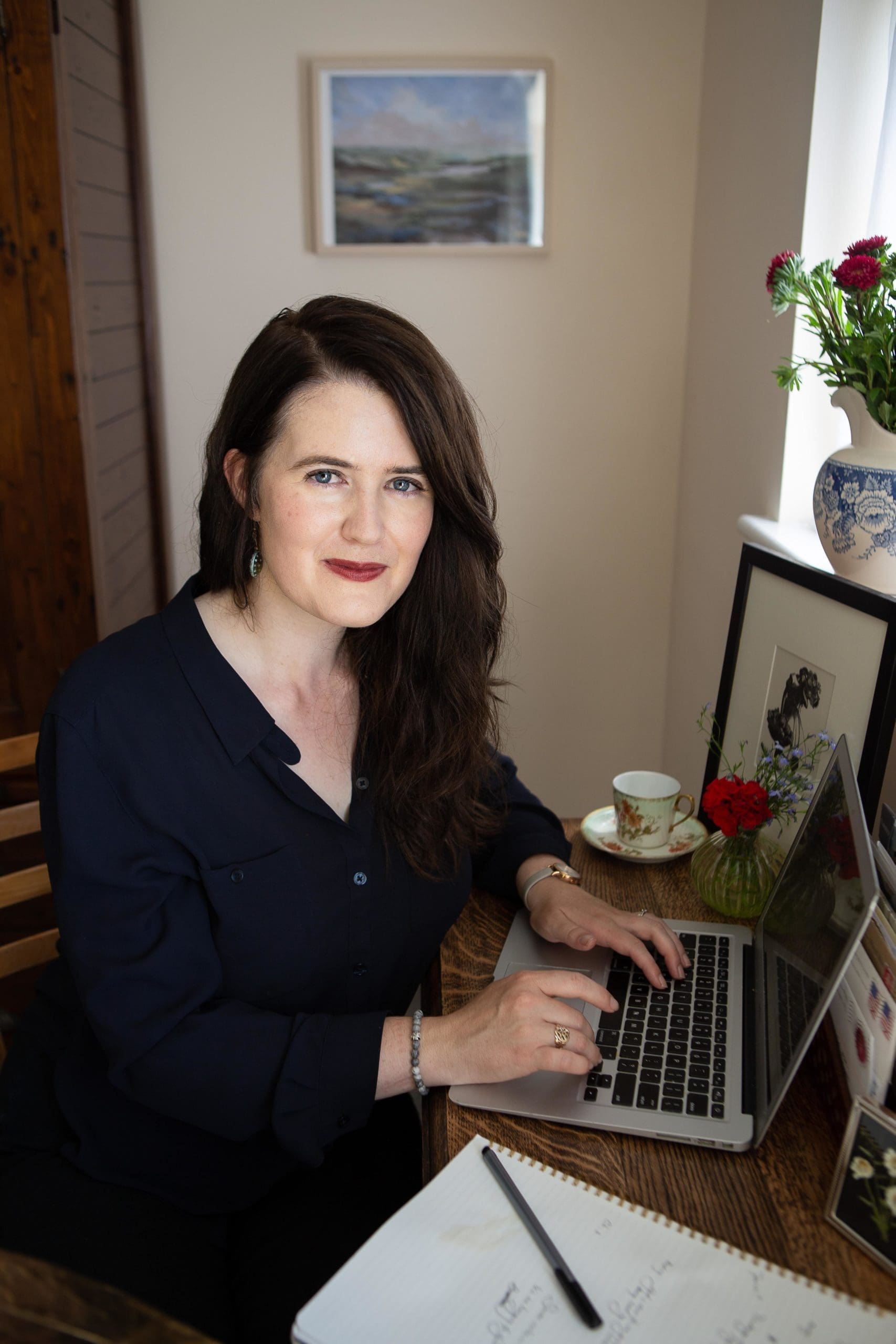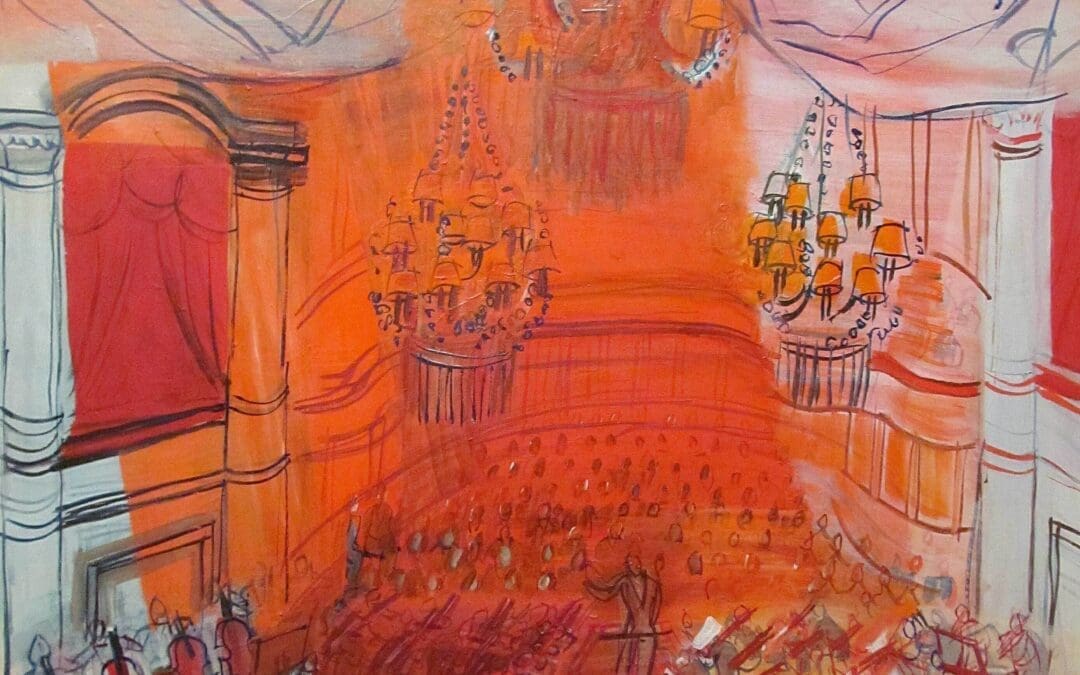I keep an embroidered old cloth on my kitchen table. It’s ample and sturdy, made for service, for jostled teacups and emptied plates. But it’s also lovely, starred with handworked flowers of summer gold and sapphire blue—a thing of vintage, workaday beauty that comes with quite a story.
A wedding gift from a beloved Oxford professor, the tablecloth was crafted by her mother when she worked as a nurse during the Second World War. Nursing then was work that broke both back and heart. Women mended wounded bodies in haste and saw the way that violence can shatter a person in body and heart, was likely shattering those they loved.
Even so, when the nurses sat up in the long nights, Nazi bombs stalking the shadows, they weren’t allowed to be idle. At least, my professor’s mother wasn’t.
The women in her unit were asked to keep their hands constantly busy, especially during the witching loneliness of the small hours. So amid talk and tea, they embroidered tea towels and tablecloths with vivid rings of intricate leaves and delicate flowers, a strange springtime blossoming in the darkness.
Now those flowers blossom amid my ordinary. They offer a daily pleasure to my eye, but after several years in their presence, I am also aware of their subtle, muscled challenge. For they ask me to consider who I will become when I confront the witching hours of my own darkness, the long, inevitable night watches of my loneliness and fear.
There have been plenty of those in the five years since my marriage. It’s been a hectic, gorgeous, grieved season in which my husband and I have forged the small world of our family even as we finished degrees, welcoming two babies even as we entered the demanding work of full-time ministry. We lost a pregnancy, mourned the deaths of my husband’s mother and a beloved cousin, suffered long illnesses and lockdowns. There have been many days in these high-stakes years when life shifted in startling and irreversible ways, when the weight of exhaustion or grief left me feeling shocked and incapable of creative effort in the small realm of our home. I felt suspended from the ordinary, indifferent to the daily acts of creativity or faithfulness that so intricately weave the quality and tenor of our lives.
That feeling of suspension is familiar to me. I know it well from a lifetime spent in the company of mental illness. When obsessive-compulsive disorder tangles my mind with countless images of disaster, the world seems drained of meaning, devoid of any possible joy. I think this is what happens to every human in the midst of pain. And we are tempted, in those dark, haunting hours, to believe that our darkness tells the truest story about the world.
But again and again, my doubt has been quietly reversed, my hope summoned back to life by the simple presence of ordinary beauty and the engagement it asks of me. By the light falling slant on a bowl of apples. A line in a story. The laugh of a child or the lilt of a Celtic song.
Or, these days, by the presence of that old, embroidered cloth. The more I sit with it, the more aware I become that the beauty crafted by its maker is defiant. With a husband or son entangled in the same war that sent people bloodied and broken into her care, with bombs falling and rubble piled outside, with hunger gnawing at stomach and soul, still she crafted. She hoped. She stitched order back into a broken world. Her fingers wove a truth opposite to destruction.
How can I receive the heritage of her hands without a deep sense of the faithfulness it enfleshes passing in challenge to me?
For her hope was embodied in what she made. Her gift reminds me that the faith I hold is incarnational, rooted in the coming of God into the humble flesh of our ordinary. Redemption began when God stitched the cosmos back together with his own flesh, and no aspect of our existence is exempt from his healing. Our own little acts of creation are caught up in the handiwork of his renewal as it unfolds within our hearts and spills into the broken world.
Peonies planted and music played, homemade bread offered on a blue ceramic plate; time made rich by tradition, bedtimes made sweet with affection: these are the acts of faith in which the healing of the world is known. Stitch by stitch, meal by meal, we live the tale of redemption in the embodied ordinary of our daily lives. By such small things we defy the darkness.



